.jpg)
<p><span style="color: rgb(14, 16, 26);">Breast cancer is a form of cancer that primarily affects the breast tissues. It occurs when cells in the breast start to grow uncontrollably, forming a tumor. It is important to be aware of the symptoms and causes of breast cancer to facilitate early detection and timely treatment. Breast cancer is a complex disease with various risk factors, and not all cases can be prevented. However, adopting a healthy lifestyle, maintaining a healthy weight, limiting alcohol consumption, and engaging in regular physical activity can help reduce the risk of developing breast cancer.</span></p><p><span style="color: rgb(14, 16, 26);"> </span></p><p><span style="color: rgb(14, 16, 26);">It is essential for women to be proactive about their breast health by conducting regular self-examinations, scheduling routine screenings, and seeking medical attention for any concerning symptoms. Early detection, combined with advances in treatment options, has significantly improved the prognosis for breast cancer patients in recent years.</span></p><p><span style="color: rgb(14, 16, 26);"> </span></p><p><strong style="color: rgb(14, 16, 26);">Symptoms of Breast Cancer:</strong></p><ul><li>Formation of a lump or thickening in the breast or underarm area.</li><li>Changes in breast size or shape.</li><li>Swelling, redness, or warmth in the breast.</li><li>Nipple changes, such as inversion, discharge, or scaling.</li><li>Persistent pain or tenderness in the breast.</li></ul><p><span style="color: rgb(14, 16, 26);"> </span></p><p><strong style="color: rgb(14, 16, 26);">Causes of Breast Cancer:</strong></p><ul><li><strong>Genetic Factors:</strong> Some individuals carry genetic mutations, such as BRCA1 and BRCA2, which increase their risk of developing breast cancer. These mutations can be inherited from family members.</li><li><strong>Hormonal Influence</strong>: Hormonal factors play a significant role in breast cancer. Women who have early menstrual periods, late menopause, or a history of hormone replacement therapy are at a higher risk.</li><li><strong>Age and Gender</strong>: Breast cancer is more common in women, and the risk increases with age. Most cases are diagnosed in women above 50 years old.</li><li><strong>Personal History</strong>: If an individual has previously had breast cancer in one breast, they have an increased risk of developing cancer in the other breast or a recurrence in the same breast. Having a close relative, such as a mother, sister, or daughter, with a history of breast cancer increases the risk. The risk is higher if the affected relative was diagnosed at a young age.</li><li><strong>Dense Breast Tissue</strong>: Women with dense breast tissue, as seen on mammograms, have a higher risk of breast cancer.</li><li><strong>Previous Benign Breast Conditions:</strong> Certain benign breast conditions, such as atypical hyperplasia or lobular carcinoma in situ, can increase the risk of developing breast cancer.</li><li><strong>Lifestyle Factors:</strong> Unhealthy lifestyle choices can contribute to an increased risk of breast cancer. These include excessive alcohol consumption, obesity, lack of physical activity, and smoking.</li></ul><p><span style="color: rgb(14, 16, 26);"> </span></p><p><span style="color: rgb(14, 16, 26);">Early detection and diagnosis of Breast Cancer are crucial for successful treatment outcomes. Regular breast self-examinations, clinical breast examinations by healthcare professionals, and mammograms can help detect any abnormalities or changes in the breast. It is important to consult a healthcare provider if any symptoms or concerns arise.</span></p><p><span style="color: rgb(14, 16, 26);"> </span></p><p><span style="color: rgb(14, 16, 26);">If breast cancer is diagnosed, the treatment options may include, radiation therapy, chemotherapy, hormonal therapy, or targeted therapy. The choice of treatment depends on various factors, including the stage of cancer, the size of the tumor, and the patient's overall health.</span></p><p><span style="color: rgb(14, 16, 26);"> </span></p><p><span style="color: rgb(14, 16, 26);">Breast cancer is a complex disease that can be classified into different types based on various factors. The main types of breast cancer include:</span></p><ul><li><strong>Ductal Carcinoma in Situ (DCIS):</strong> DCIS is a non-invasive breast cancer where abnormal cells are found in the lining of the milk ducts. It is considered an early-stage cancer and has not spread beyond the ducts to invade nearby tissues.</li><li><strong>Invasive Ductal Carcinoma (IDC):</strong> IDC is the most common type of breast cancer, accounting for about 80% of cases. It starts in the milk ducts but then invades and spreads into the surrounding breast tissue. It can also metastasize to other parts of the body.</li><li><strong>Invasive Lobular Carcinoma (ILC):</strong> ILC begins in the milk-producing glands of the breast. It accounts for about 10-15% of all breast cancers. It tends to spread in a diffused pattern, making it more difficult to detect through mammography.</li><li><strong>Inflammatory Breast Cancer (IBC):</strong> IBC is a rare and aggressive form of breast cancer. It accounts for only about 1-5% of breast cancer cases. It usually presents with symptoms like redness, swelling, and warmth in the breast. IBC can spread quickly and requires immediate and aggressive treatment without leaving the chance for it to have an impact on the body.</li><li><strong>Triple-Negative Breast Cancer (TNBC):</strong> TNBC refers to breast cancers that lack estrogen receptor (ER), progesterone receptor (PR), and human epidermal growth factor receptor 2 (HER2) expression. It accounts for about 10-15% of breast cancer cases. TNBC is often more aggressive and associated with a poorer prognosis.</li></ul><p><span style="color: rgb(14, 16, 26);"> </span></p><p><span style="color: rgb(14, 16, 26);">In addition to these main types, there are also less common subtypes of breast cancer, including papillary carcinoma, medullary carcinoma, mucinous carcinoma, and metaplastic carcinoma. These subtypes have distinct characteristics and may require specific treatment approaches. It's important to note that each individual's breast cancer may have unique characteristics, including the presence or absence of hormones and HER2 status. These factors play a significant role in determining the most appropriate treatment options for each patient, including surgery, radiation therapy, chemotherapy, hormonal therapy, and targeted therapy.</span></p><p> </p><p>At Kaizen Oncology Network, breast cancer is a significant focus of their comprehensive oncology care. The Best Hospital in Hyderabad consists of a group of specialized healthcare providers dedicated to delivering advanced cancer treatments and personalized care to breast cancer patients.</p><p><br></p><p>Kaizen Oncology Network offers a multidisciplinary approach to breast cancer treatment, involving a team of medical oncologists, surgical oncologists, radiation oncologists, radiologists, pathologists, and other healthcare professionals. This collaborative approach at Best Hospital in Hyderabad ensures that patients receive comprehensive and individualized treatment plans tailored to their specific needs. The network provides state-of-the-art diagnostic services, including advanced imaging techniques such as mammography, ultrasound, MRI, and biopsy procedures. These diagnostic tools help in the accurate staging and characterization of breast cancer, allowing for appropriate treatment planning. Additionally, the Best Hospital in Hyderabad emphasizes patient education, support groups, and survivorship programs to ensure that breast cancer patients and their families have access to resources and emotional support throughout their journey.</p><p>Kaizen Oncology Network is committed to staying at the forefront of breast cancer research and advancements in treatment options. They strive to provide compassionate, evidence-based care to improve outcomes and quality of life for breast cancer patients.</p>
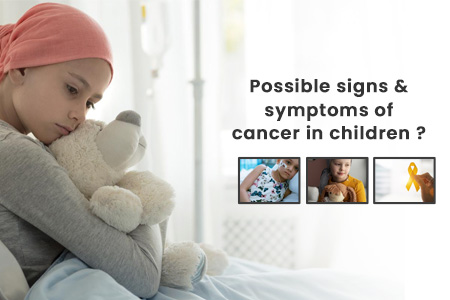 A complete guide on Detecting Childhood Cancer
A complete guide on Detecting Childhood Cancer
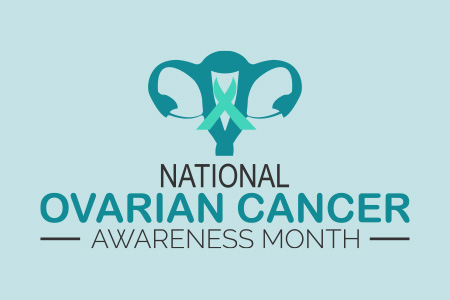 Raising National Ovarian Cancer Awareness
Raising National Ovarian Cancer Awareness
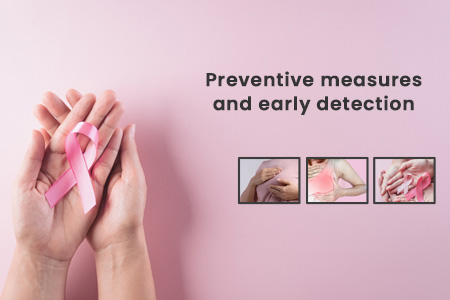 Preventive Measures and Early Detection
Preventive Measures and Early Detection
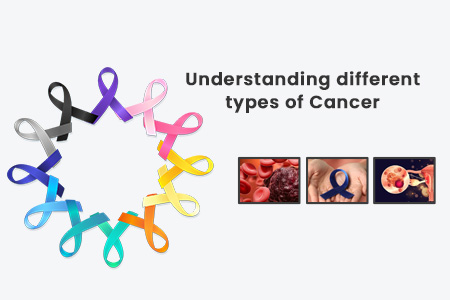 Understanding Different Types of Cancer
Understanding Different Types of Cancer
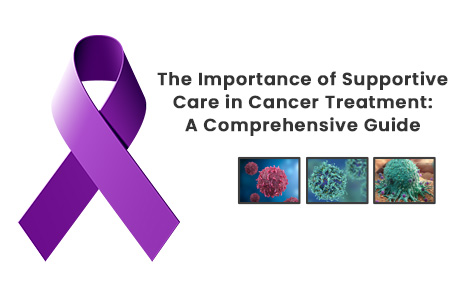 The Importance of Supportive Care in Cancer Treatment: A Comprehensive Guide
The Importance of Supportive Care in Cancer Treatment: A Comprehensive Guide
.jpg) A complete Guide to Breast Cancer awareness
A complete Guide to Breast Cancer awareness
.jpg) Rising Cases of Oral Cancer and its Causes
Rising Cases of Oral Cancer and its Causes
.jpg) Tips for Breast Self-Examination
Tips for Breast Self-Examination
.jpg) The Complete Guide to Breast Cancer
The Complete Guide to Breast Cancer
Do you need emergency Medical care?
Copyright © 2022 kaizen rights reserved.